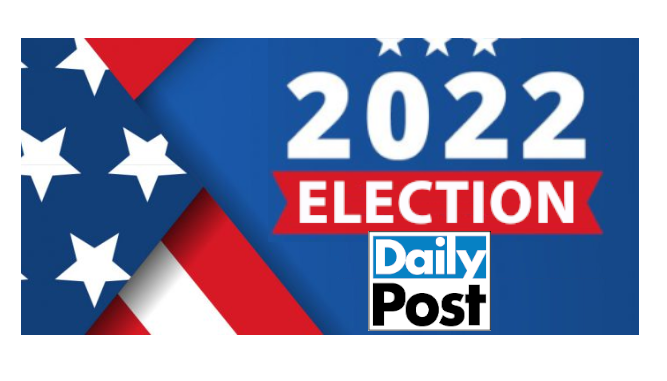
By EMILY MIBACH
Daily Post Staff Writer
Voters in almost all cities in the Post’s circulation area will have to weigh in on at least one ballot measure. This year’s measures vary from trying to limit apartment developments to raising the taxes charged to hotel guests.
Measure S: Redwood City School District’s bond measure — 55% approval needed
The K-8 school district is putting a $298 million bond measure with a tax rate of $24 per $100,000 of a property’s assessed valuation, bringing in about $16 million annually. The district says the money would go to all school sites, including ones currently occupied by charter schools. The bond measure will be used for a variety of projects if it gets 55% in November, including building classrooms dedicated for music, art and performing arts electives, renovating or replacing classrooms, including some portables that the district says are unsafe, replacing roofs, removing asbestos and renovating preschool and kindergarten classrooms and play areas. Some money may also go toward buying land and rebuilding the district’s administrative office at 750 Bradford St. in downtown Redwood City.
Measure W: Sequoia Union High School District bond measure — 55% approval needed
The high school district that covers Belmont to East Palo Alto has put on the ballot a $591.5 million bond with a tax rate of $14 per each $100,000 of a property’s assessed valuation. The bond money will replace the HVAC systems at the district’s schools so all classrooms have air conditioning and better air filtration. Other ways the money could be used would be to renovate parts of the schools, such as bathrooms, and some of the older buildings at the schools. Money could also be used to purchase land.
Measure K: Belmont Hotel Tax increase — majority needed
Belmont officials are asking voters to increase the city’s transient occupancy tax, or hotel guest tax, from 12% to 14%. To compare with other cities, San Mateo’s hotel tax is 14% and San Carlos’ is currently 13%, and will increase to 14% on Jan. 1. Half Moon Bay’s tax is 15% and Palo Alto’s is 15.5%.
Measure L: East Palo Alto landlord tax — majority needed
The city wants to raise money in order to implement more housing programs and hopes to raise its tax on on landlords from 1.5% to 2.5% of their gross revenues. The tax increase would raise about $1.48 million annually and would go until it’s ended by voters or council.
Measure V: Zoning freeze in single-family neighborhoods — majority needed
Measure V doesn’t involve taxes. It would require a vote of residents if the council plans to rezone land in a single-family home neighborhood for an apartment building. Proponents of the measure, mainly residents of the Suburban Park-Flood Park Triangle neighborhood, wanted to stop the Ravenswood City School District from putting up an apartment house on the former Flood School site. But after Measure V got on the ballot, the Legislature said cities couldn’t stop school districts from using surplus land for housing as long as the development meets city zoning standards. However, if Measure V passes, it would apply to the rest of the city.
Measure Z: Redwood City Election procedures — majority needed
This measure is a housekeeping item to align city election dates with the state.
Measure P: Redwood City Mayoral term — majority needed
The council is asking voters to reduce the number of years a council member serves as mayor. Right now the council rotates its mayor every two years. Having a one-year term limit would enable more people to become mayor.
Measure K: Palo Alto’s business tax — majority needed
The city wants to put a tax on businesses at a monthly rate of 7.5 cents per square foot occupied by a business, up to $500,000 per business. The tax exempts grocery stores and businesses under 10,000 square-feet. This would raise about $9.6 million and run for 35 years. This measure is a compromise between the city and businesses. At one point, the council was looking at the tax being as high as $43.3 million.
Measure L: Palo Alto natural gas utility general fund transfer — majority needed
After a judge ruled the city can’t automatically transfer the taxes residents and businesses pay for utilities such as natural gas into it’s general fund to pay for things such as parks, salaries and libraries, the city has to go to voters and ask for permission to resume its practice of transferring up to 18% of revenues from its natural gas utility to the general fund.
